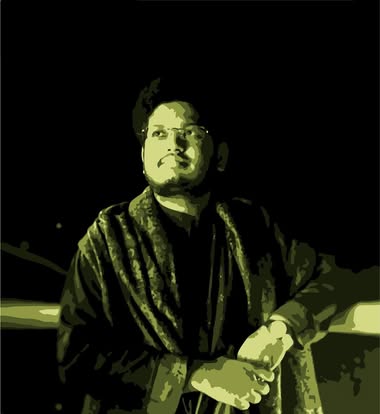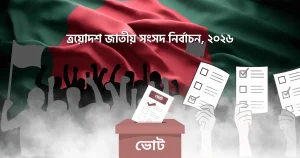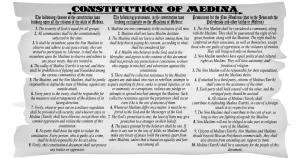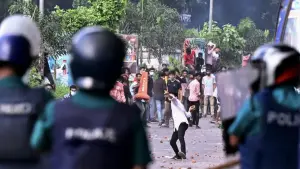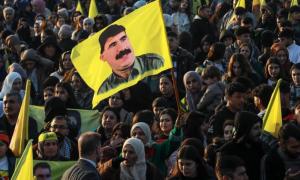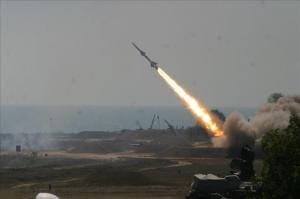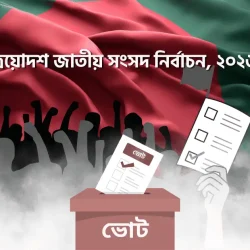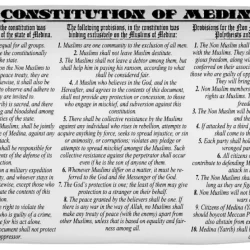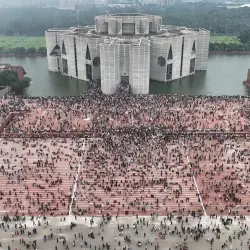The struggle for freedom and the defense of human rights has been waged continuously throughout history. People are still oppressed under dictatorships in many parts of the world, where the rule of law has been supplanted by the rule of terror. Dictatorships are notorious for violating fundamental human rights, such as freedom of expression, assembly, and the press, and the results can be disastrous. The Ongoing Conflict between Dictatorship and Human Rights is seen nowadays in every corner of the world. From the USA to Bangladesh, nowhere the civil society is independent and in a safe state from the oppression of the government.
The situation in South Asia, where a number of governments have been charged with repressing political opposition and gravely violating the rights of their population. The situation in South Asia is a striking reminder of the continued struggle for freedom and human rights in the face of authoritarianism, from the widespread use of extrajudicial killings by security personnel to the discrimination against minority groups and extensive corruption.
This article will look at what a dictatorship is like, how it breaches human rights, and how attempts are still being made to ensure that everyone has access to freedom and justice. We will examine the intricate and frequently challenging fights that characterize the ongoing fight for freedom, from historical lessons to current difficulties encountered by human rights campaigners around the world.
What is Dictatorship?
A dictatorship is a system of government in which one person or a small group has total authority over the state and is not subject to any democratic oversight. Individual freedoms and civil liberties are suppressed, media and information are restricted, and force and violence are used to preserve power under this style of administration. The effects of dictators on human rights and the ongoing fight for freedom will be discussed in this article.
Historical Overview of Dictatorships and Human Rights
Dictatorship has been a prevalent type of government throughout history that frequently results in the violation of human rights. The idea of a dictatorship originated in prehistoric societies where rulers were granted unrestricted authority to rule and make decisions on behalf of their subjects.
During World War II, Nazi Germany, under the rule of dictator Adolph Hitler, provided one of the first and most infamous instances of dictatorship and breaches of human rights. Horrific human rights violations were carried out by Hitler and the Nazi dictatorship, including the murder of six million Jews and members of other minority groups, the frequent use of concentration camps, and the killing of large numbers of people.
Numerous additional dictatorships and human rights abuses have taken place in the 20th century, including those of Joseph Stalin in the Soviet Union, Mao Zedong in China, and Pol Pot in Cambodia. The harsh suppression of opposition during these dictatorships, the widespread employment of concentration camps and secret police, and the routine violation of fundamental human rights, such as the right to life, the freedom of speech, and the right to association, were their defining characteristics.
Dictatorship and human rights abuses have occurred in nations more recently, including North Korea, Zimbabwe, and Myanmar. The Bangladeshi government’s Awami League has been charged with stifling criticism and breaching citizens’ human rights, including their freedom of speech, participation in politics, and the right to a fair trial.
The ongoing fight for freedom and human rights serves as a reminder of how crucial it is to defend fundamental rights and advance democracy. Despite the fact that dictatorship has been a common type of governance throughout history, it nevertheless poses a threat to the security and freedom of all people and serves as a reminder of the ongoing fight for these rights.
When does a government turn into a Dictatorship?
The development of a dictatorship is frequently motivated by the desire for total control and power. Dictators want to crush any political opposition and seize total power over the state, which includes the military, courts, and media. This enables them to keep their position of authority, frequently at the expense of civil liberties and individual freedom.
A military takeover, electoral fraud, or the creation of a one-party state are just a few ways that a government can turn into a dictatorship. Depending on the individual situation, a government might become a dictatorship in a variety of ways, but the desire for total control and power is frequently the underlying cause.
A military coup of the government or other violent takeover can occasionally result in the installation of a dictatorship. This may occur if the military seizes power and installs itself as the ruling authority because it is unhappy with the incumbent administration. A paramilitary or covert police force is frequently established to maintain control, civil freedoms are typically curtailed, and political dissent is frequently suppressed. However, the emergence of one-party states in the twenty-first century has brought about dictatorship. These days, the most common form of dictatorship is this one.
A political system in which only one political party is legally permitted to hold power and compete in elections is known as a one-party state. As a result, there may be a concentration of political power and repression of all opposing viewpoints, effectively transforming the government into a dictatorship.
North Korea, which is governed by the Workers’ Party of Korea, is one instance of this (WPK). Since its founding in 1948, the WPK has maintained a monopoly on political power in North Korea, and all other political parties are forbidden. The executive, legislative, and judicial institutions of government, as well as the media and the armed forces, are all under the jurisdiction of the WPK.
Read Protection and Promotion of Human Rights and its procedures
The WPK has been able to keep total control of the nation and repress all political opposition thanks to the creation of a one-party state in North Korea. Widespread violations of human rights have followed from this, including limitations on fundamental liberties such as the freedom of speech, assembly, and the press. Additionally, the North Korean government has been charged with pervasive repression and breaches of human rights, such as the use of camps for forced labor, extrajudicial killings, and censorship of information.
The Effect of Dictatorships on Human Rights
One of the most serious effects of a dictatorship on human rights is the repression of personal freedom and civil liberties. The media and information are completely under the control of the government in a dictatorship, and dissent is frequently met with violence and repression. The defense of civil and political rights, such as the freedom of speech and assembly, is significantly impacted by this.
Another significant effect of dictatorship on human rights is the contempt for the law. Governments in dictator regimes are not subject to the rule of law, and extrajudicial killings and arbitrary detention are frequent practices. The dictatorship can impact a state and its population in addition to these:
Suppression of Political Opposition
It is frequently difficult for citizens to express their thoughts and participate in political discourse under dictatorships because they repress political opposition and impose restrictions on the freedom of speech, assembly, and the press.
Human rights violations
Widespread human rights violations, such as the use of torture, arbitrary detention, and extrajudicial executions, which can lead to misery and the death of many persons, are frequent characteristics of dictatorships.
Economic difficulties
The economy can suffer from dictatorships as well since they frequently hinder innovation and creativity and foster an environment that is unwelcoming to investment. In addition to fostering uncertainty and instability, the repression of political dissent and resistance can harm the economy.
Social and cultural repression
Dictatorships can also restrict the freedoms of religion, culture, and lifestyle, leading to a loss of cultural heritage and diversity and a reduction in the quality of life for many citizens.
Lack of accountability
Dictatorships are often characterized by a lack of accountability, as the ruling party is not subject to the checks and balances of a democratic system, making it difficult for citizens to hold the government accountable for its actions.
The state and the citizens’ human rights can be significantly impacted by a dictatorship, which can result in widespread repression, abuses of human rights, economic difficulties, social and cultural repression, and a lack of accountability. Any society’s ability to function well and its inhabitants’ well-being depends on the promotion of freedom and democracy and the defense of human rights.
Bangladesh’s scenario is one current instance in which human rights have been grossly violated. Several international organizations, including Human Rights Watch (HRW), Amnesty International, and the United Nations (UN), have documented the allegations of human rights breaches in Bangladesh (UN). The Awami League has controlled Bangladesh since taking office in 2009. The administration has been charged with repressing political dissent and infringing on citizens’ human rights, especially the freedom of expression, assembly, and the press.
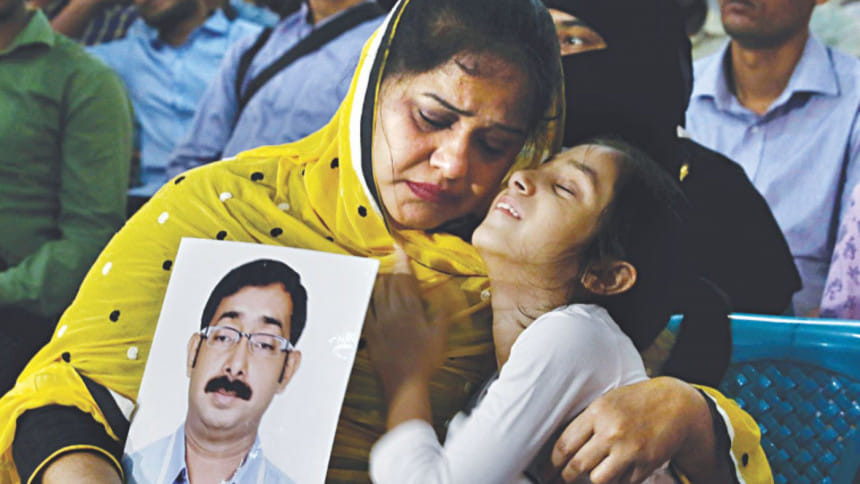
The frequent use of extrajudicial murders by the security forces in Bangladesh has been one of the most significant human rights violations. Human rights organizations have compiled a large number of incidents of people being detained, then killed, frequently without following the proper procedures. As a result, there is a climate of fear and intimidation, and many Bangladeshis are reluctant to criticize the administration or take up political engagement.
The government has additionally been charged with massive corruption due to the involvement of numerous members of the ruling party in elaborate theft and bribery schemes. Many Bangladeshis now live in extreme poverty and struggle to meet their most basic necessities as a result of the widespread poverty and economic misery caused by this.
The treatment of minorities, particularly religious and ethnic minorities, is a significant issue in Bangladesh. Government officials have been charged with discriminating against various groups, notably by using forcible eviction, torture, and arbitrary incarceration. The result has been extensive violations of human rights and the eviction of thousands of people from their homes.
Can the dictators be excused in any way?
People continue to resist and strive for their liberation despite the enormous violations of human rights that authoritarian governments commit. The fight for freedom under authoritarian regimes must include resistance movements, human rights organizations, and international institutions like the United Nations.
His famous quote, the French philosopher Voltaire once said, “I may disagree with what you have to say, but I shall defend, to the death, your right to say it.” This sentiment sums up the importance of the fight for freedom and human rights in dictatorship regimes.
However, dictatorship is frequently defended with a number of arguments, including the need to maintain stability. Some contend that a strong leader in a dictatorship can move swiftly and decisively without being constrained by democratic procedures, bringing stability in times of political upheaval or catastrophe.
Additionally, they contend that a dictatorship can promote economic growth by enabling rapid decision-making without being constrained by democratic procedures. They contend that the suppression of opposition and unification of the nation under the stern direction of a single leader under a dictatorship can advance national unity.
These defenses, however, do not stand up to the restriction of fundamental freedoms and the violation of human rights. Fundamental human rights breaches include the repression of political opposition, the restriction of free speech, assembly, and the press, the use of torture, arbitrary detention, and extrajudicial executions.
Additionally, repressing dissent and limiting political opposition can have detrimental effects on economic growth because they can hinder innovation and creativity and foster an environment that is unwelcoming to investment.
The repression of fundamental liberties and the abuse of human rights are not justified by dictators, in the end. It is impossible to compromise on the protection of human rights and the advancement of freedom and democracy in the name of stability, economic growth, or national unity. These factors are necessary for any society to function properly.
Human rights are significantly impacted by dictatorship regimes, which also limit individual freedom and civil liberties, disrespect the rule of law, and violate economic and social rights. Despite this, individuals still strive against oppression and battle for their freedom, and dictatorial governments continue to struggle to uphold basic human rights. As global citizens, it is our responsibility to stand up for freedom and human rights and to hold repressive regimes responsible for their deeds.
